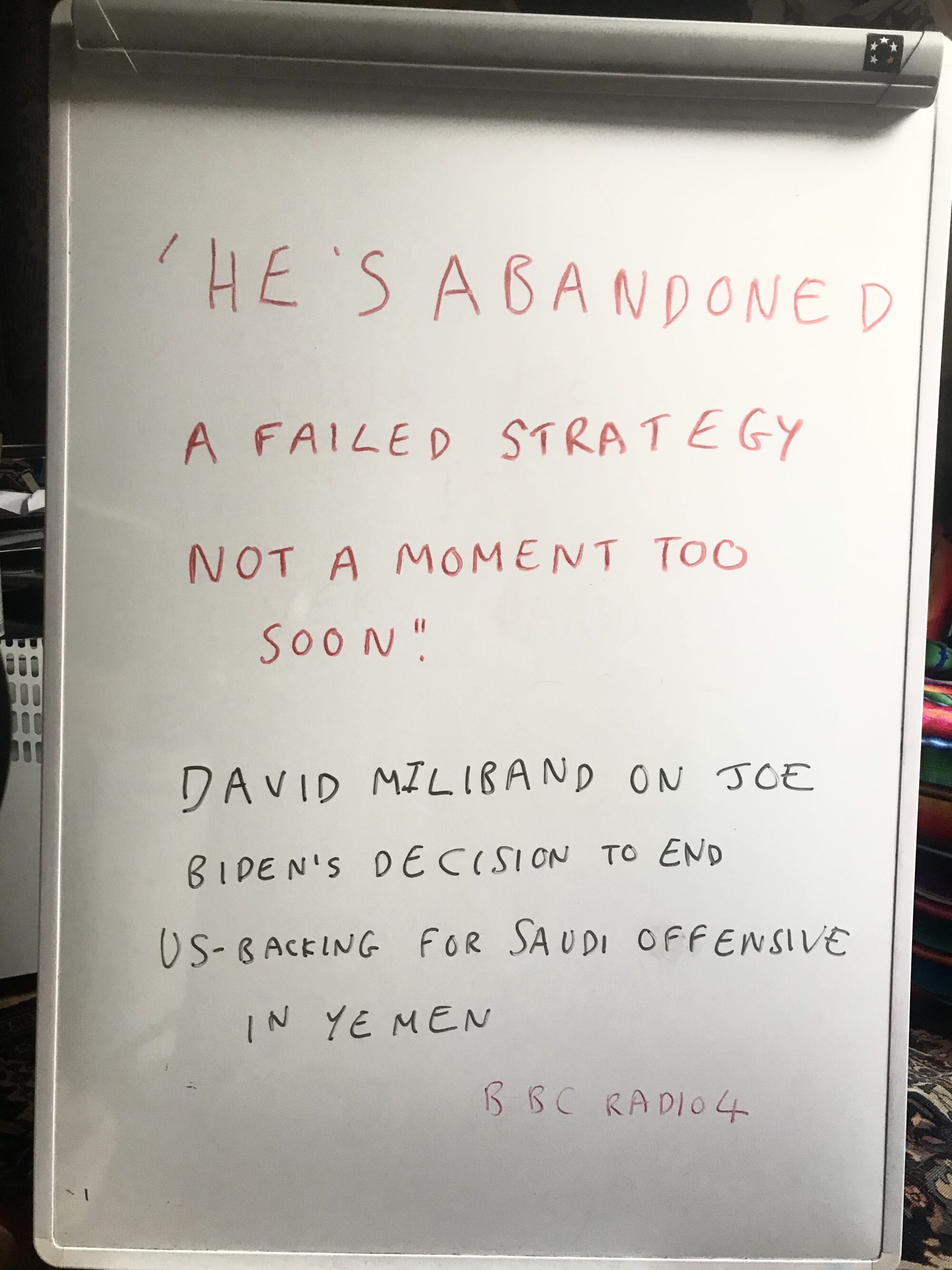
What criteria do media trainers judge interviews by?
If you’re interested in humanitarian issues and foreign policy have a listen to IRC CEO, David Miliband’s BBC Radio 4 interview about the Biden administration’s announcement that it is withdrawing US support for the Saudi led offensive in Yemen.
(The segment starts at around 1:15).
From my perspective, it was a four-minute lesson in message discipline and clarity.
Here are three (non-exhaustive) observations:
1. It contained clear messages that were full of quotable phrases:
– ‘This is a 180-degree turn from the failed war strategy that we’ve seen for the last 4 or 5 years.
– ‘It’s an important set of steps.’
– He (President Biden) has ‘abandoned a failed strategy not a moment too soon.’
– Yemen needs a ‘massive infusion of aid’.
– ‘There’s an important role for Britain to play’ (Miliband is a former UK Foreign Secretary).
2. He demonstrated authority through selective use of meaningful numbers (although I would probably have used fractions rather than percentages):
– 24 Mn people, 80% of population are dependent on humanitarian aid
– 20 Mn have no access to clean water
– 50% of health facilities aren’t working
3. He flagged what was important:
– The ‘First steps’ should be a ceasefire
– ‘It’s vital that the (Huthi terrorist) designation issue is addressed urgently’.
3. He didn’t use much jargon:
– I counted one example when he talked about ‘rogue non-state actors such as ISIS’.
My only quibble? I would have liked a good concrete example that painted more of a picture of what life is actually like on the ground for people in Yemen.
But the numbers went some way to addressing this and this was a hybrid diplomatic/humanitarian interview so it’s not surprising the focus was split and the overall tone and illustration prioritised being forensic and structured.
